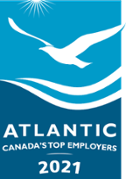The Physics Department within the Faculty of Science at the University of New Brunswick (UNB) invites applications for a Tier 1 NSERC Canada Research Chair (CRC) in Quantum Sensors for Space Applications. As classical sensors reach their limit in accuracy and precision, new quantum sensors, based on entirely different approaches, are essential to take the next quantum leap in understanding our natural environment and developing next generation technologies. This emerging area is a priority for strategic growth at UNB, which strives to advance knowledge and improve modern technologies. Quantum sensing is also a key mission in Canada's National Quantum Strategy, which aims to promote research and development of quantum technologies and strengthen Canada's talent pool in these sectors.
UNB has well-established and internationally recognized Space research spanning faculties and departments, and recently established the Quantum Sensing and Ultracold Matter (QSUM) laboratory. This CRC will bridge the gap between Space research and quantum sensing for applications in Space. The chair will establish a research program that focuses on developing quantum sensors and technologies for one or more of the following research areas:
Â
- Improved positioning, navigation, and timing;
- Improved in-situ and remote sensing capabilities for electromagnetic fields, time-variable gravimetry, Earth observation, and climate monitoring;
- A better understanding of the Space environment;
- Advancement of Space-based communications;
Â
These active areas of research at UNB foster collaborations across departments including Electrical & Computer Engineering, Geodesy and Geomatics Engineering, Earth Sciences, Forestry and Environmental Management (FOREM), and Mathematics & Statistics.
UNB is committed to fostering diversity within our community and developing an inclusive workplace that reflects the richness of our broader community. This position will uphold UNB's commitment to increasing the representation of under-represented groups among its chairholders. Therefore, only applicants who self-identify as members of gender equity deserving groups (including cisgender women, transgender women, transgender men, two-spirit, and non-binary) and/or as racialized individuals will be considered for this opportunity. We encourage those with intersecting identities to apply (for example, women who identify as racialized individuals, Indigenous, and/or persons with disabilities).
The successful candidate will be appointed at the rank of Professor or Associate Professor with Tenure, if qualifications and experience warrant, within the Department of Physics in the Faculty of Science. Their salary will be commensurate with their qualifications and experience. Per UNB requirements, the successful candidate will hold a Ph.D. or equivalent in Physics, Engineering, or a related discipline. UNB will nominate the selected candidate for the Tier 1 CRC in Quantum Sensors for Space Applications. The offer of appointment is conditional upon the candidate being awarded a Canada Research Chair. The anticipated start date of the appointment is January 1, 2025, or as negotiated.
Tier 1 CRCs are for outstanding researchers acknowledged by their peers as world leaders in their fields. The successful candidate will bring a record of leadership in multidisciplinary and collaborative research achievements in quantum sensing technologies that shows global impact. The assessment of candidates will be based on research excellence as reflected in the quality and impact of Declaration on Research Assessment (DORA) outputs, previous successes securing external research funding, demonstrated impact in knowledge mobilization, leadership within the international community, and other evidence of impact. The DORA outputs include, but are not limited to, published journal articles, article preprints, datasets, software, protocols, well-trained researchers, societal outcomes, and policy changes resulting from research. In addition, the successful candidate also must show evidence of successful teaching, including mentorship, and possess the potential to attract, develop, and retain excellent trainees, students, and future researchers.
UNB is a small comprehensive university with a long history of excellence in teaching and research. Quantum sensing and Space-related research at UNB is concentrated primarily on four broad areas: 1) The Quantum Sensing and Ultracold Matter (QSUM) laboratory (Science); 2) Laboratories for Space Instrumentation and Remote Sensing (Science, FOREM, and Engineering); 3) Earth and Planetary Environments (Science and Engineering); and 4) Materials Science and Manufacturing (Science and Engineering). The research conducted in these fields at UNB is internationally renowned and has established strong international and industrial collaborations. The Physics Department conducts world-leading research in Space Research, Materials Magnetic Resonance Imaging (MRI), and Atomic and Molecular Physics. The Department of Physics offers physics programs at both the undergraduate and graduate levels and is starting an undergraduate Engineering Physics program in collaboration with the Faculty of Engineering. This new program will offer specializations in Space Systems and Optical Engineering. The Physics department has a well-equipped machine shop and a modern electronics laboratory. Students have access to a Maker's Space with design software and 3D printing facilities. The Faculty of Science also has a microscopy and microanalysis facility.
The University of New Brunswick recognizes and respectfully acknowledges that UNB stands on the unsurrendered and unceded traditional Wolastoqey land. The lands of Wabanaki people are recognized in a series of Peace and Friendship Treaties to establish an ongoing relationship of peace, friendship, and mutual respect between equal nations. The Physics Department and the Faculty of Science are both located on UNB's Fredericton campus - the capital city of the province of New Brunswick - providing all the amenities of a large city with the added charm of a small town. Situated along the banks of the beautiful and bountiful Wolastoq River, a region recognized worldwide for its natural beauty, Fredericton offers a rare opportunity for academics to undertake world-class research in a supportive, family-friendly, and low-stress environment. Faculty can afford to live downtown, only a short walk from campus, or in forested rural communities that enjoy only a 15-minute commute, making it easy to engage in research, outdoor activities, and social activities. An extensive network of multi-use trails and a vibrant network of community and multicultural organizations provide the opportunity for a balanced life in which both research and community engagement thrive. Rated Canada's #2 city to live in, Fredericton's affordable tech-savvy, nature-infused environment is the ideal place to live and raise a family. It has also played a significant role in attracting a well-grounded, team-oriented group of world-leading researchers.
UNB ensures that employment opportunities are accessible to all applicants. To request accommodations at any stage in the recruitment and hiring process, please contact UNB's Recruitment & Employee Experience Specialist at 506-453-4648 or people@unb.ca.
UNB recognizes the legitimate impact that life circumstances such as illness, disability, family, and community responsibilities (e.g., maternity leave, parental leave, leaves due to illness, leaves due to caring for family members, or slowdowns due to chronic illness or disability) are expected to have an impact on a candidate's record of research achievement. These impacts will be taken into careful consideration during the assessment process.
Please consult the Canada Research Chairs website for full program information, including further details on eligibility criteria.
Applicants are requested to supply a current CV, including a list of DORA outputs, statements describing previous performance in research, teaching and supervision, and a statement identifying strengths and experiences related to equity, diversity, and inclusion in their current and previous institutional environments. All qualified individuals are encouraged to apply; however, per Canadian Immigration requirements, applicants are requested to specify if they are legally entitled to work in Canada. Names and contact details of at least three references should also be sent. Applications should be sent to:
The Chair
Physics Department
University of New Brunswick
8 Bailey Drive, PO Box 4400
Fredericton, New Brunswick
Canada E3B 5A3
E-mail: phychair@unb.ca
Short-listed candidates will be required to provide satisfactory proof of credentials including appropriately certified translations of credentials into English, as applicable.
The University of New Brunswick is committed to employment equity and fostering diversity within our community and developing an inclusive workplace that reflects the richness of the broader community that we serve. The University welcomes and encourages applications from all qualified individuals who will help us achieve our goals, including women, visible minorities, Aboriginal persons, persons with disabilities, persons of any sexual orientation, gender identity or gender expression. Preference will be given to Canadian citizens and permanent residents of Canada.


